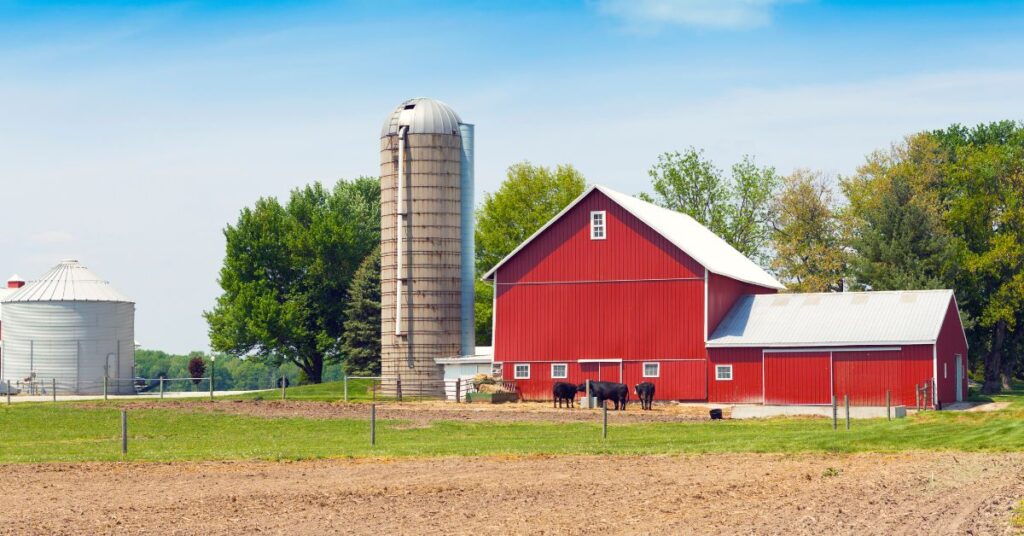The distribution of a farm inheritance is rarely a straightforward process. Unlike liquid assets or divisible investments, a farm carries deep emotional ties, decades of shared family history, and, often, the promise of future economic potential. When siblings are involved, differing perspectives, aspirations, and life circumstances can turn an already complex matter into a deeply emotional and contentious issue.
This guide explores the core challenges of managing sibling conflict over farm inheritance and provides actionable strategies to approach these sensitive situations with fairness and respect. Follow these tips to ensure you can navigate this issue with the care and knowledge that it deserves.
Understanding Sibling Dynamics in Inheritance Disputes
Farm inheritance disputes frequently stem from contrasting relationships and perspectives among siblings. Each sibling may view the farm differently based on their role in the family, personal experiences, or financial reliance on the land. A sibling who has regularly worked on the farm for years may see it as their livelihood and legacy, while another who pursued careers elsewhere may view the inheritance simply as a financial asset.
Confusion over parental intentions or verbal promises can also intensify conflicts, especially if a clear estate plan isn’t in place. The absence of clarity can lead to speculation, unmet expectations, and feelings of favoritism, which further strain sibling relationships.
Acknowledging and understanding these diverse dynamics ensures families can begin to approach the situation more empathetically, laying the groundwork for productive discussions.
The Emotional Aspects of Farm Inheritance
Farms are more than investment properties—they are typically woven into the fabric of a family’s identity. For many, a farm represents a way of life, a legacy of hard work, and a cherished connection to previous generations. These emotional ties can amplify disputes, as siblings grapple with balancing their vision for the farm with what feels fair and respectful to everyone involved.
Individual emotional responses can vary significantly. One sibling may experience grief at the thought of selling the family farm, while others may wrestle with guilt, resentment, or confusion about how to honor their parents’ wishes. Recognizing these emotional layers helps all parties approach discussions with greater understanding and patience.

Facilitating Open Communication Among Siblings
Open dialogue is a crucial first step in addressing farm inheritance disputes. Taking the time to sit down together and listen to each sibling’s perspective is key to fostering mutual understanding. These conversations should create space for everyone to express their feelings, concerns, and hopes for the future of the farm.
It is important to approach these discussions with respect and neutrality, avoiding accusatory language or dismissive behavior. Remember, the goal is not only to resolve logistical challenges but also to maintain sibling relationships and preserve family unity.
Neutral facilitators within the family, or a trusted third party, can help mediate these conversations to ensure they remain constructive and focused.
Seeking Professional Mediation and Legal Advice
Managing sibling conflict over a farm inheritance is certainly possible, but, sometimes, the best-intentioned family discussions hit roadblocks. When emotions run high, or when the conversation becomes unproductive, professional mediation becomes an invaluable resource.
Mediators bring an objective perspective to the table, helping families set priorities, find common ground, and explore solutions that might not otherwise surface.
Legal guidance also plays a critical role in navigating farm inheritance disputes. Farm estates can involve complex components, such as zoning regulations, business operations, or tax implications, which require specialized knowledge.
Consulting with an estate attorney or an agricultural law professional can clarify legal documents, identify options for equitable distribution, and ensure adherence to state and federal laws. A sound legal strategy reduces misunderstandings and protects both familial and financial interests.
Exploring Creative Solutions for Fair Distribution
Not all farm inheritance disputes require a winner and a loser. Creative problem-solving can yield solutions that honor both the farm’s legacy and each sibling’s individual needs. For example, shared ownership agreements allow siblings to co-manage farm operations, turning the inheritance into a collaborative family effort. Buyout arrangements, on the other hand, can provide liquid assets to one or more siblings while allowing another to continue running the farm.
If one sibling has a strong desire to maintain ownership, but others do not, leasing arrangements can offer an effective compromise. The sibling who inherits the operational role may lease portions of the land to other family members or external parties, generating income that benefits all parties. Exploring such alternatives can lessen the emotional weight of making a singular, definitive decision.
Selling the Farmland
Selling the farmland can be a viable solution when resolving inheritance disputes among siblings, particularly if maintaining joint ownership is not feasible or desired. This option allows the property’s value to be equitably divided among heirs, providing a clear and practical resolution.
However, deciding to sell the farm is typically an emotional process, as it may represent generations of family history and hard work. It is essential for siblings to approach this decision thoughtfully, considering both financial and sentimental factors. Work with experts who you can trust to handle the property responsibly from the moment you plan to sell, to the second the deal closes. You can talk to reputable Midwest real estate brokers right now who can help you prepare your property for the market.
Working with a trusted real estate agent who specializes in agricultural properties can also help ensure a smooth and transparent sale. Importantly, open communication among siblings is key during this time, as it helps address differing opinions and foster collaborative decision-making. While selling the farmland can feel like the end of a chapter, it may also open new opportunities for each family member while preserving unity and respect within the family.

Preserving Family Harmony Through Respectful Dialogue
While distributing a farm inheritance fairly is important, maintaining respectful and loving family relationships should remain the ultimate goal. Families that approach the process with empathy, patience, and consistent communication are far more likely to preserve trust and harmony. Acknowledging each sibling’s unique challenges and contributions throughout the inheritance process is vital to fostering goodwill.
It’s also essential to continue dialogue well after an agreement is finally reached. Regular family check-ins about the farm’s progress, shared financial decisions, or operational changes can reinforce collaborative efforts and ensure all parties feel included in the legacy they share. Preserving family ties is an ongoing process, not a one-time decision.
Building a Lasting Legacy Together
A farm represents more than a plot of land—it reflects a family’s history, resilience, and shared dreams. By working together with mutual respect and understanding, siblings not only resolve the issues at hand but also strengthen the foundation for a thriving family dynamic for generations to come.
Inheritance processes offer families a unique opportunity to reflect on what matters most to them. With thoughtful planning, empathetic dialogue, and creative solutions, farm inheritance disputes can evolve into moments of growth, unity, and trust.
If your family is considering selling farmland, start the process today by arranging a professional appraisal and consulting with a qualified real estate agent. Open the lines of communication with your siblings, and take the first steps toward making an informed, collaborative decision.